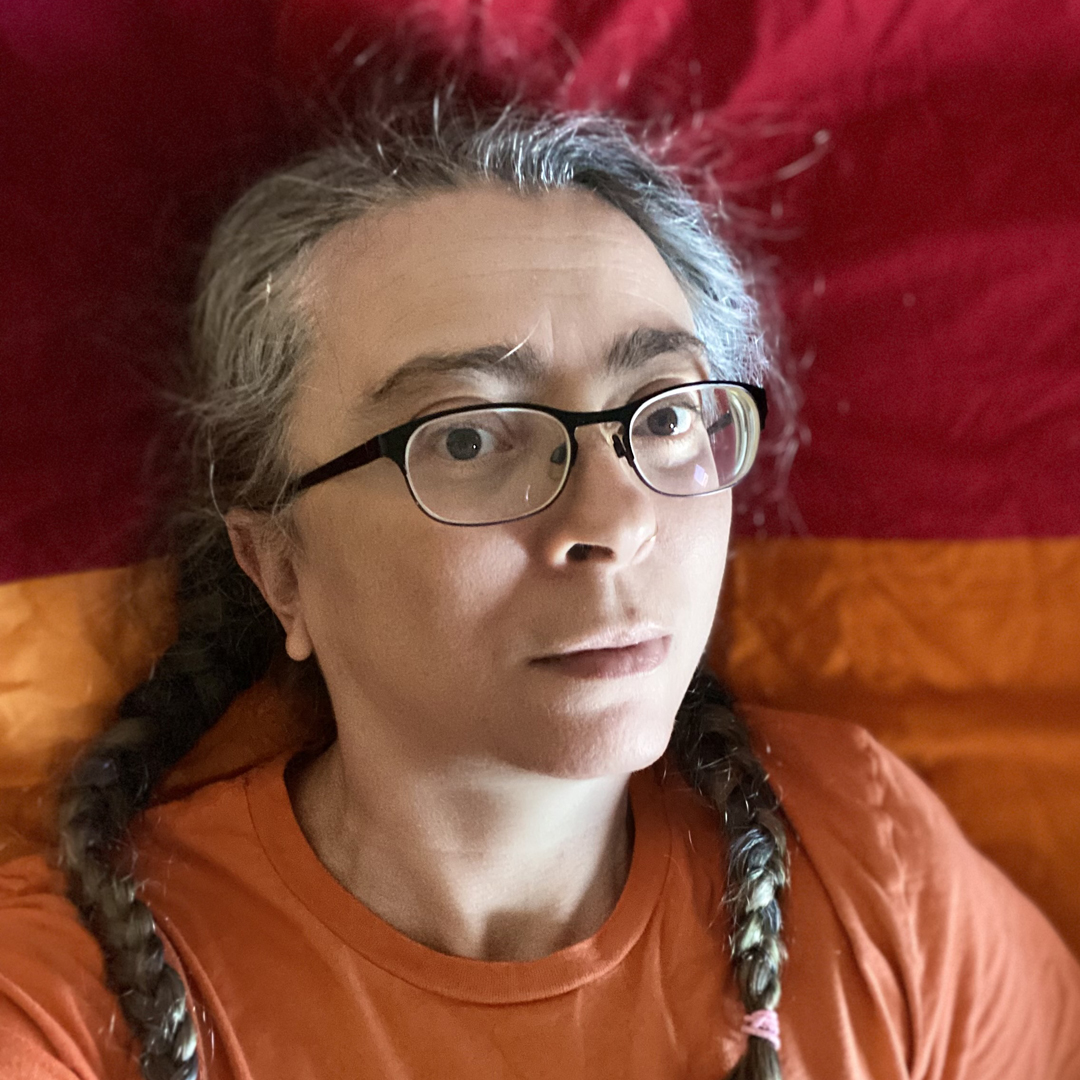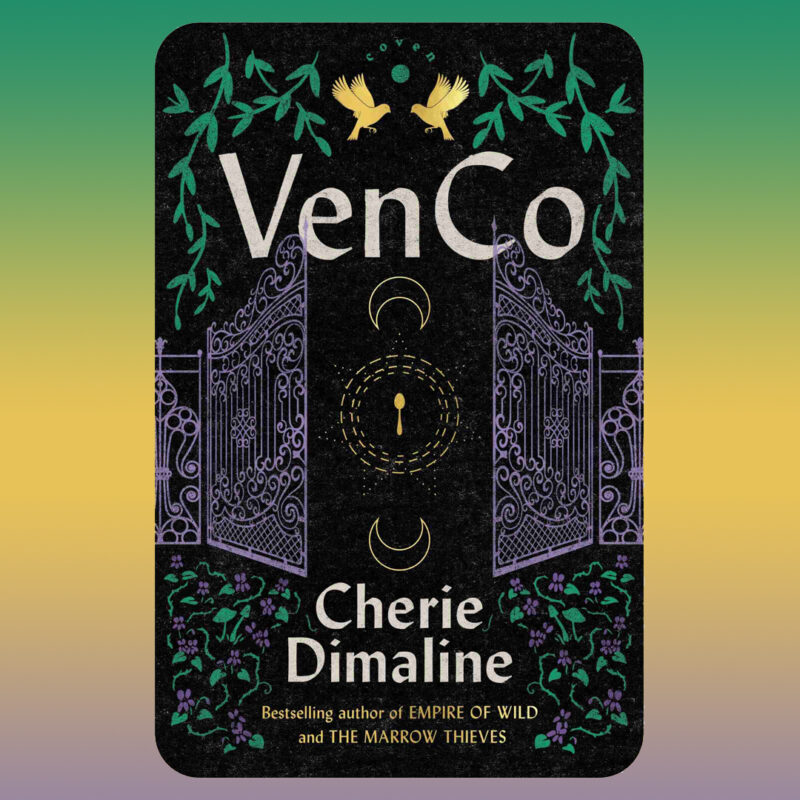USEREVIEW 131: Rematriation: Decolonial Witches Fight the Patriarchy
Shantell Powell unveils the secrets (and only a few minor spoilers) of Cherie Dimaline’s latest novel VenCo (Random House Canada, 2023) in this traditional review.
Content notes: death of a parent, lynching, domestic abuse, homophobia, misogyny, sexual assault and dead-naming. The reviewer wishes to thank NetGalley, for an Advance Reading Copy in exchange for an honest review.
ISBN 978-0-73527-721-2 | 400 pages | $35.00 CAD — BUY Here
#CAROUSELreviews
#USEREVIEWEDNESDAY
Cherie Dimaline is the award-winning writer of The Marrow Thieves and Red Rooms, the founding editor of Muskrat Magazine and, in 2015, she became the first Indigenous writer-in-residence for the Toronto Public Library. She is from the Georgian Bay Métis Nation, and her writing features Indigenous characters fighting against the effects of colonialism. Dimaline’s most recent novel, VenCo, continues this theme.
Lucky St. James is a Métis millennial with a dead-end temping job. She lives in a tiny Toronto apartment with her grandmother, Stella, and they are not having an easy time. Like so many others in the city, they are victims of the housing crisis, and are about to be evicted. To top matters off, Stella is slipping into dementia. She has tendencies of wandering off, and gets lost in memories. Stella’s stories often seem too bizarre to be true, like the time a man tried to tunnel into their laundry room.
Secret passageways have always made me perk up, so I couldn’t wait until Lucky finds out her grandmother was right all along. Yes, there is a tunnel behind the laundry room. But when Lucky ventures inside, she doesn’t find anything particularly interesting: just a kitschy little souvenir spoon with a stereotypical image of a witch on it and the word “Salem.” The discovery of this spoon is the inciting incident of the story. Lucky is now on a quest to find out its significance.
This decorative silverware is the sixth of seven spoons, and now the seventh spoon, and the seventh witch, must be located in order to complete the coven and hex the patriarchy. I’m embarrassed to say it took me almost a third of the way into the book to realise “VenCo” is an anagram of “coven.” Shame on me, because I already knew from the blurb that VenCo is a book about witches. This coven is part of an international network of witches. This intersectionally-feminist coven is made up of female witches from a variety of backgrounds, including a woman escaping her transphobic fundamentalist Christian upbringing, a Black lesbian from a bloodline of witches, a Creole single mother who has fled from domestic abuse, a white goth woman escaping a life of monotony, and a lesbian Anishinaabe-kwe from Cape Croker First Nation. All of them are survivors in their own right.
I got a kick out of the antagonist’s name: Jay Christos. I appreciate Dimaline’s tip of the hat to religious colonialism, and how the Christian church has historically been in opposition to Indigenous practices and matriarchal societies. However, I do have a problem with Dimaline’s representation of Jay Christos’ background. He is a member of the Benandanti, a secret society of witch hunters.
Once upon a time, I was a historian of the witch trials of early modern Europe. I studied witches and heretics, including the Benandanti. Dimaline represents the Benandanti as a patriarchal society made up of men in opposition to witchcraft and matriarchy, but this plays fast and loose with the reality. The Benandanti (or “Good Walkers”) were members of an agrarian visionary tradition in northeastern Italy in the 16th and 17th centuries. They claimed to leave their bodies while they slept in order to defend harvests and the fertility of fields against the Malandanti (malevolent witches). These night travels of the Benandanti were assimilated into the stereotype of the witches’ sabbat. Benandanti included both women and men, and they were hunted to extinction by the Inquisition. By villainizing the Benandanti, Dimaline inadvertently takes the side of the Catholic Church, historic oppressors of Indigenous Peoples all around the world.
I wanted to love this book as much as I loved The Marrow Thieves, but I found the pacing of VenCo to be sluggish until halfway through the novel. I kept waiting for something to happen, and I had to force myself to continue reading. It does pick up in the second half, but I was left unsatisfied.
Although the other witches in the coven are interesting and never come across as token characters, I believe the story suffers from insufficient character interactions. Each of the witches has a well-defined backstory, but I was left wanting to know how they fit into the coven. What are their magical abilities? What makes Lucky so special compared to the others? What are they all supposed to do once the coven is complete? Interrelationships between the characters feel underdeveloped, aside from the relationship between Lucky and her grandmother. Why do Lucky and her grandmother separate from the rest of the coven? This isn’t explained well for me, especially considering how it is stressed throughout the story that support and community are necessary for survival.
I also feel the story needs more explanation. I didn’t understand the relationship between the coven and the mysterious Maiden, Mother and Crone who appear in the prologue and who remain very hands-off with the formation of the coven. Who are they, and why can’t they get directly involved? Why is the North American coven the most important one of all? Why exactly are the witch hunts still happening, and how come Jay Christos doesn’t have any minions to help him achieve his evil patriarchal plans, especially since patriarchy does not operate in a vacuum? Is it because it’s easier to write about one enemy rather than multiple enemies?
There are some lovely moments in the story. I enjoyed the anti-capitalist themes, the introduction of the powwow woman (a practitioner of Pennsylvania Dutch powwow, a blend of Christian theology, healing remedies and folk magic) and Lucky’s banter with Jay Christos which draws upon her feminine sexuality. I love the continuing theme of the power of familial relations, whether they be blood relations or chosen family.
Overall, the book feels more like a preamble than it does a fully-formed story. There are other covens, and the Maiden, Mother, and Crone have undisclosed knowledge of what is yet to come. I hope there will be a sequel in which the other characters become more fleshed-out and the loose ends will be braided together.
VenCo may appeal to readers of The Witches of Moonshyne Manor by Bianca Marais, The Witches of Eastwick by John Updike, or Practical Magic by Alice Hoffman.


